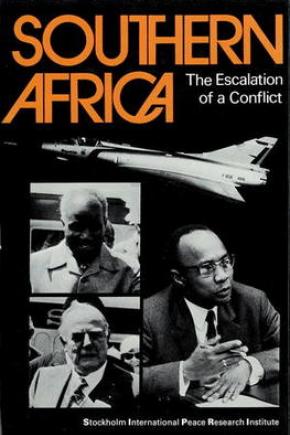Southern Africa: The Escalation of a Conflict
In this study of the current political upheaval in Southern Africa, four topics of primary interest have been investigated: (1) the nature of the conflict determinants; (2) whether a common pattern of conflict escalation exists in the region; (3) the implications of Portugal's withdrawal from Africa; and (4) the prospects of a major war between the white-ruled states and the members of the Organization of African Unity—and the likelihood of foreign involvement in such a confrontation.
South Africa is the major power factor in this part of the world. It belongs by now to the 'near nuclear' countries and could develop a nuclear bomb if it should decide to do so. One of the conclusions reached here is that the apartheid state would not endure for very long without substantial foreign intervention on the side of the white regime. The history of research and development of nuclear technology shows a general pattern of Western cooperation with South Africa.
What is at stake in Southern Africa is not just the issue of changing the apartheid system, but how to change it and to the benefit of whom. It is doubtful, considering the poverty and misery imposed on the blacks, that they will be content with limited reforms designed to bolster the economy. They can be expected to seek to eliminate completely the doctrines and practices of white racial supremacy.
Introduction
Part I. Conflict determinants
1. Local conflict determinants
2. International conflict determinants
3. The polarization of forces
Part II. A general pattern of conflict escalation
4. Reformism
5. Revolution
Part III. The military power of South Africa and Rhodesia
6. The Republic of South Africa
7. Rhodesia
Part VI. The changing balance of power in Southern Africa
8. Factors making for disintegration in Portugal
9. Portuguese Africa
10. South Africa
11. Rhodesia
12. Namibia
Part V. Summary and conclusions
Appendix 1. Arms imports by South Africa, Rhodesia and Portugal, 1950–74
Appendix 2. United Nations resolutions bearing upon problems of race conflict in South Africa
Appendix 3. United Nations embargo against exports to Southern Rhodesia
Appendix 4. Selected bibliography

